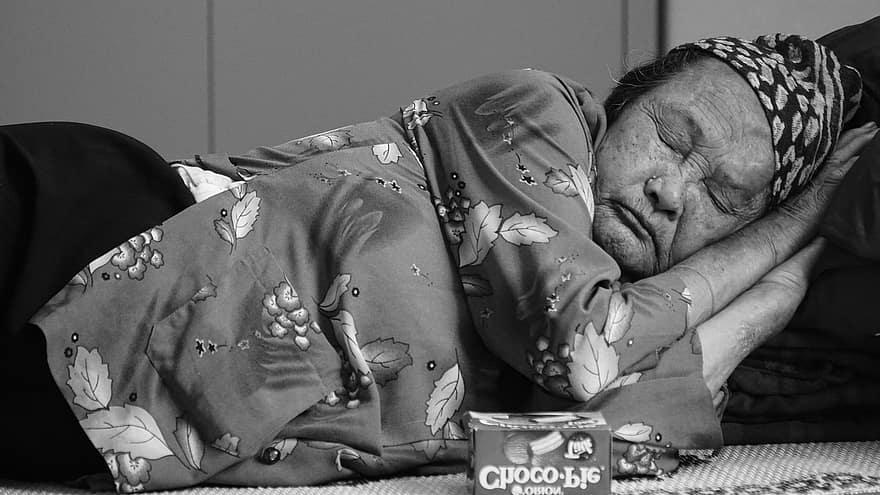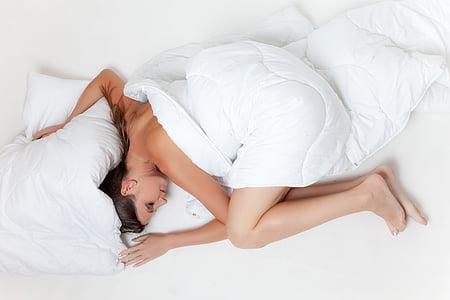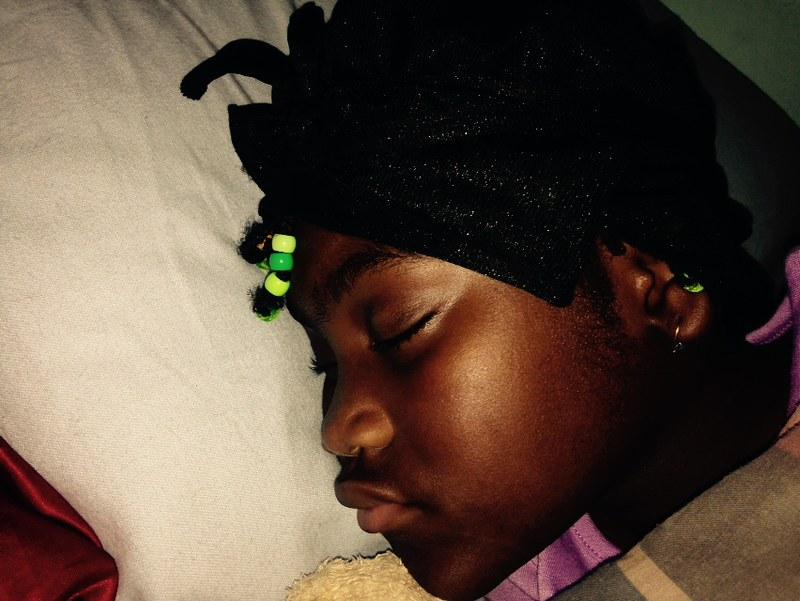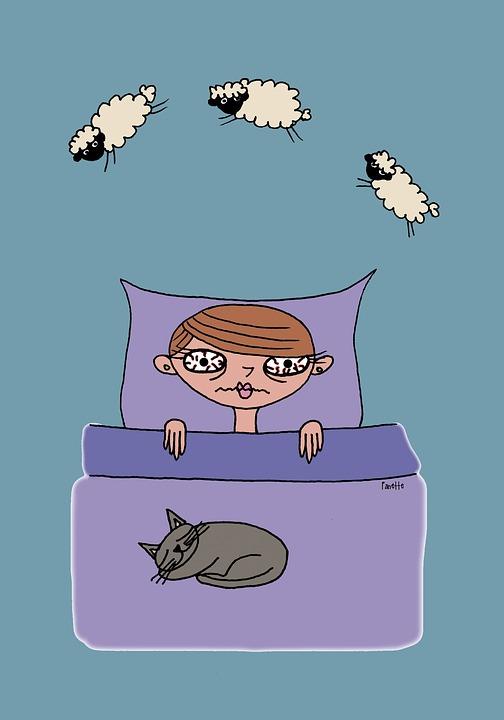The Crippling Effects, Causes and Possible Solutions To Insomnia

If you’ve ever had to spend the night tossing and turning continuously in bed due to the inability to fall asleep, then you’d be glad to learn that you’re vastly not alone. This is a condition that plagues a lot of people especially persons living in urban areas. An adulthood dilemma – one we’re often too afraid to admit.
In this article, we are going to discuss everything you need to know about the reasons for difficulty in sleeping, the causes of insomnia, possible solutions, and the crippling effects of insomnia on your mind and body.

What Is Insomnia?
Insomnia is a chronic sleep disorder that is generally characterized by poor sleep routines, imbalanced or unhealthy sleep patterns, and general rest problems. There are a lot of factors that can generally contribute to lack of sleep like stress, lack of exercise, too much caffeine, and lots more. But, when this irregularity becomes a norm, this disorder can be referred to as chronic insomnia.
Although sleep hours vary from individual to individual, health practitioners state that the hours of sleep that is required for every young or old adult should be at least 7-8 hours every day. There are several inducers of sleep disorder, and It is okay to have a few occasional sleepless nights. But, you know it is chronic Insomnia when you go multiple nights a week without having even as much as a little time to sleep. It is a hellish experience and can go a long way to affect one’s general work effectiveness, mental health, and productivity.
Sometimes, insomnia is caused by several factors including underlying medical issues, behavioral insights, and psychological patterns.
For insomniacs, it is often not about the quantity but the quality of sleep. This means that Insomnia is generally defined by the amount of uninterrupted rest as opposed to the time of fitful turns spent on the bed.
Symptoms Of Insomnia
Insomnia is a common sleep disorder that can make it really difficult to do the following;
- Fall asleep
- Stay asleep
- Cause you to stay awake at all times
- Prevent you from going back to sleep
It’s always almost in this stereotypical pattern.
First, you’re in bed, and it’s 1 am in the morning. Several thoughts rampage your mind. You are restless as your bed suddenly becomes uncomfortable. It’s almost as if you’ve started your tour to the confines of hell.
Will I sleep after all? Why am I suddenly not exhausted? I’ve been feeling down and groggy since the day began? Why am I seriously not sleeping now?

Does this in any way sound familiar?
When you reach out to a medical professional or psychology expert and try to narrate your quaint experiences, there’s always a handful of stereotypical questions. Do you do meditation? Do you work late? How much caffeine do you take during the day?
These follow-up questions are oftentimes drawn from some of the most familiar symptoms that present with this condition.
A person with insomnia often has the following active symptoms.
- Irregular sleep patterns
- You may have difficulty falling asleep
- Once sleep is disrupted, you may have difficulty falling asleep again
- You need pills to sleep

What Causes Insomnia?
There are a number of factors that lead and contribute vastly to insomnia. You’d be surprised to learn that insomnia at its basic level can be caused by something as light as unhealthy sleep patterns, but when it begins to escalate, and gradually develops into chronic sleep disorder, we may be looking at a sleep irregularity caused by relatively biological factors, psychiatric health and medical conditions in some individuals. Many adults at one point or the other experience insomnia for either a few days or weeks. This short term insomnia is also called acute insomnia and is necessarily factored by stress, work-related anxiety, trauma, and all the other shenanigans associated with adulthood. When it continues to last for a month and more, there are definitely other chronic factors to consider.
Sometimes, insomnia might be the primary problem, while other times, it may be related to other conditions. Here are some medical, psychological and physical causes of insomnia in an adult:
- Financial concerns
- Fear
- Stress
- Schoolwork
- Loss or death
- Trauma
- Travel/jet lag
- Poor sleep habits
- Watching TV
- Smartphones/video games
- Uncomfortable sleep environment
- Mind stimulating activities
- Concerns and worry
- Work schedule
- Irregular bedtime patterns

Chronic insomnia can be caused by the following psychological reasons:
- Bodily Reactions to certain drugs like weight loss medications, pain suppressants, and caffeine-induced stimulants.
- Anxiety disorder.
- Issues related to Mental health.
- Post-traumatic stress disorder.
- Depression.
- Chronic pain caused by arthritis.
Some medical conditions that can cause insomnia includes:
- Cancer
- Arthritis
- Asthma
- Severe pain
- Sleep apnea
- (GERD) Gastroesophageal reflux disease
- Alzheimer’s disease
- Parkinson’s disease or other neurological conditions
- Restless Leg
- Nasal/sinus allergies
- Overactive thyroid
Sleep apnea which is irrefutably a common sleep disorder can in many ways lead to chronic insomnia. It is a common sleep disorder that affects the airways. If you’re affected by sleep apnea, your airways including your nasals can be grossly affected by becoming partially or completely blocked during sleep. This condition is very uncomfortable and can cause the sufferer to experience difficulty in breathing, which would in turn lead to a drop in oxygen levels.
Because sleeping is mostly uncomfortable and short, people with this condition suffer from a chronic sleep disorder. This condition causes you to stop breathing periodically and interrupts your sleep.
Restless leg syndrome, on the other hand, causes a restless sensation in your feet, and you’re stuck with an irresistible feeling to move your leg when you’re asleep. This feeling interferes greatly with your sleep and prevents you from falling asleep for a long time.
Other factors that may encourage chronic insomnia include caffeine, stress, nicotine, etc.
As stated above, stress and other anxiety-inducing factors can really mess with the state of your mind. When your mind is excessively active during late hours of the day, you’re bound to have an uncomfortable and disorienting sleep.
Taking caffeine and other body stimulating drinks in the afternoon, or a few hours before bedtime, can grossly affect your sleep routine. Nicotine contains tobacco which is a stimulant that Keeps your body active against sleep.
Coffee, tea, and cola, and other strong caffeinated drinks can also pose as a stimulant to prevent sleep. Research experts also prove that alcohol disrupts your sleep from time to time, and does not help you sleep for long.
Unhealthy and irregular lifestyle patterns also lead to insomnia. Without having an underlying psychiatric or medical condition, poor and irregular sleep patterns can cause acute insomnia as well. When you sleep too late or try to avoid sleep at all, maybe, due to a work deadline, or an examination you need to study for. Doing this regularly can harm your sleep pattern in the long run.working too late into the evenings, and maybe halfway into the night might make it difficult to unwind and relax eventually.
Strenuous night shifts, long work hours without breaks, long naps during the day amongst several other factors can cause insomnia or chronic sleep disorder at night.
Your sleep positions can also affect and cause insomnia. Sleeping in a comfortable environment and position is superbly important if you wish to have an uninterrupted night. Most people that suffer from insomnia are often plagued with thoughts centered on which side of the bed is best to sleep on. While there are many positions to have a comfortable and good night’s rest, a bad sleeping position can cause insomnia too.
There are three main sleeping positions:
Back, side, and stomach. There may be people who sit to sleep, but these three are what works best for the major populace, and can be alternated carefully by individuals depending on certain variables.
For instance, sleeping on your back can help lower the chances of sleep apnea and prevent lower back pains. Sleeping on your stomach, on the other hand, can put pressure on your lower back, and add a strain to your neck which may in turn lead to neck pains.
While most people sleep alternating on all three sides, specialists suggest that sleeping on your side is one of the best sleeping positions to help fight insomnia. This way, your spine, and back is balanced and relaxed comfortably without strain.
Sleeping properly can be essential in alleviating sleep deprivation and insomnia.

10 Tips on How to Avoid Insomnia
-
Try To Create a Peaceful and Comfortable Sleep Environment
Your bedroom should have an appealing and calm decor with a mind soothing night glow that can induce sleep. Trying to control the amount of noise that infiltrates your room will go a long way to prevent insomnia. Your wall painting should be of a calm and simple design. Having intricate and complex patterns can subconsciously mess with your mind and promote insomnia
2 Get a Comfortable Bed
If you’re in an uncomfortable bed and environment, then the higher your chances of not getting a good rest. Get a soft and plush bed to pamper your skin, and avoid sleeping on the hard floor, or areas generally prone to mosquitoes.
3. Avoid Taking Caffeine During Late Hours
Cola, energy drinks, tea, and other caffeinated drinks can inhibit sleep faster than you think. Instead of taking tea, try drinking warm milk as it is known to be one of the fastest inducers of sleep.
4. Cut Down On Alcohol and Avoid Smoking Altogether
If you’re a consistent smoker, then this is one of the reasons you should consider cutting down on the habit. Cigarettes have nicotine which is a stimulant that prevents sleep.
5. Document and Scribble Out The Things Boggling Your Mind
If you’re like most people whose mind hit overdrive once they try to fall asleep, then you can help yourself easily by writing down all the things you think about. All the things you plan to do tomorrow, and all of your worries. In this way, you’d help free up your mind remarkably.
6. Don’t Force It
If you find it difficult to sleep, don’t force it. Instead, focus that energy on doing something relaxing and soothing, and you’d be surprised to see that you’d fall asleep eventually. You can also try to listen to mind soothing music. There are a plethora of resources that help people fall asleep. you could also try calm yoga sermons that help you stay at peace and balance up the stability of your mind. There are sleep apps that you can download to help you do the trick and sleep better.

7. Cut Down On Nap Time
Napping can be a fun exercise in the middle of the day but if you’re suffering from acute insomnia, nap time can disrupt your sleep patterns as it’s important to maintain a regular rest pattern.
8. Reduce Stress
This is probably self-explanatory. Stress can affect your sleep routines and affect your bodily relaxation.
9. Consider Therapy
If you’re still having difficulty falling asleep after following all of these procedures judiciously, then it’s best advisable to try therapy. This activity might open up even newer and better possibilities for your mental health than you’d think possible. Therapy would help you identify and correct inappropriate thoughts and activities that may consciously or unconsciously contribute to insomnia.
10. Try Magnesium
Magnesium is a natural mineral that helps to naturally relax muscles, unwind, and relieve stress successfully. It induces sleep faster and effectively. In a study conducted in 2012, participants took 500mg of magnesium for two months. The results were remarkable: Participants saw a drastic drop in sleep disorder. Despite being an active sleep stimulant, it has side effects as it affects the stomach and intestines. Its side effects vary mostly for different individuals.
I’d personally advise that you start with lower doses and watch how your body reacts from time to time with a doctor’s prescription of course.
Easier Ways To Avoid Insomnia
- Take warm and soothing baths.
- Avoid lacottein.
- Ensure your room is dark, comfy, and warm.
- Eat lighter meals at night.
- Leave a piece of warm music in the background?
- Find other relaxing activities to participate in if you don’t fall asleep after 30mims.
- The secret is not to think of sleep too much.
- Try behavioral therapy.
- Try to wake up at the same time every day.
Images are gotten from pixabay.com, no attribution is required
The one who spells Afrolady from the larynx of her pen. She’s a high spirited, cultured and ingenuous African child, whose writing drops an unimaginative creative splash on history and carves the indignation and memories of Black women.

